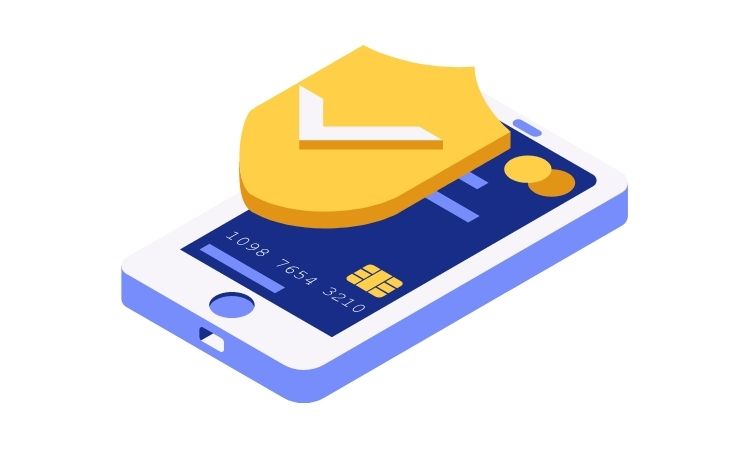A bank account with a Chinese bank is advantageous even if your visit is just for just a few weeks or even months.
In this article, you’ll discover all the details you require to know before opening an account at a bank and how to go about it. Here are the most important topics we’ll cover:
There are many reasons to open accounts with banks in China.
Even if you’re living in China for a brief period opening a bank account in China could simplify your life for many reasons:
Cash valuation
Consider that the most valuable currency for China can be as high as 100 Yuan, roughly equal to 14.5 USD. It means that you’ll have an account with lots of bills but not large amounts of money, especially when you start collecting smaller-value bills.
As we’ll be discussing later, few businesses accept payments made with international cards, such as Visa, MasterCard, and American Express. Most companies in China will only accept payment thru cards issued by Union Pay, the Chinese bank network. A bank account opening in China will allow users to acquire a Union Pay debit card quickly.
To utilize WeChat to pay using your mobile smartphone,
WeChat, although it’s known as “the” Chinese WhatsApp, is more than it sounds. WeChat lets you pay for services or taxis, as well as book taxis and more. It is necessary to possess a Chinese credit card to use these services.
For purchases made thru Chinese websites,
Chinese websites, like Taobao (the Chinese Amazon) or the official website for trains, cannot accept payment via international credit or debit cards. The only method of payment is thru the online Chinese pay system.

To cut costs by paying down commissions,
As we’ll be discussing later, the commissions charged for exchanging cash or withdrawing money from Chinese banks are significantly lower if you have an account in a Chinese banking account.
Who is eligible to open a bank account in China?
Opening a bank account in China was once simple. However, things have changed over the decades. As China expands, it’s becoming more difficult for international customers to establish accounts at banks without a residence permit or while studying or working in China.
It could be worth a shot. However, be aware that most banks will deny your application. It’s usually not because of the visa status, but because you’ll be staying for a short period in China for a short period.
In addition, you should be at least 18 years old. Suppose you are unable to establish a bank account in China. In that case, one option for foreigners who want to open accounts in different Asian countries is to open a new tab with the assistance of their friends. It is an excellent alternative if you need to pay your expenses monthly, such as gym memberships.
What information do I require to open an account with a bank in China?
Opening an account with a bank in China is comparatively easy, provided you’re a citizen of China and meet the required conditions. Below are the required documents and other information you need to gather before being granted a Chinese banking account within China.
If you’ve been taken for a trip to China to work as an expat, or if you have taken on an employment contract in China, I’d also suggest you consult with your HR department to verify what you need.
Passport:
This is almost an easy task, but it is still worth noting if you are unable to remember. It is necessary to carry your passport, along with a valid Chinese visa, before opening the bank account.
Chinese telephone number
Bank accounts will get linked to your phone number to manage your online banking. When you go to an institution to establish an account with a bank, it is recommended that you purchase an account with a Chinese SIM card and an area code number.
The Work Permit or the Student ID:
Banks may sometimes request your ID as a student or work permit before opening accounts. It’s not common; however, it is worth considering before visiting the bank.
Documentation of your residence
isn’t always required, but certain banks need it. The proof you can show of residency could be a confirmation from the hotel in which you live as well as your permit to reside.
It is important to note that opening an account with a bank in China could be more difficult if you handle all the details by yourself. The presence of a Chinese-native colleague or HR person who can assist in making the process simpler.
Do not forget to take at least 100 RMB or more in cash since banks can charge for the card used to make the purchase or the deposit, which could be between RMB 10 to 20. It shouldn’t be a significant issue if you do not carry cash, likely because there’s an ATM at hand.
Do I require an income from my payroll, or do I need to make a minimum amount deposit?
It isn’t mandatory to receive any salary. In general, they don’t need a deposit; however, it’s usually not prominent or at most 100 Yuan if they ask for one.
The importance of your name
If you are opening your bank account, it is essential to ensure that there aren’t any spelling mistakes on your account (which is not uncommon), and that’s because it should match the name that appears on your passport. If it isn’t, it could cause issues when you log into your online bank account or WeChat at a later time.
For instance, when names aren’t from the Anglo-Saxon region, they could contain characters written by the Chinese who don’t know how to write them, for example, the N in Spanish (the Chinese use English keyboards). There is nothing you need to be concerned about for sound markers, such as diaeresis and accent marks, since they’re likely to disregard them.
Be aware that computer systems were designed specifically for Chinese users, and Chinese names are limited to three characters, with the last name being the first. Due to this, names with a Spanish name like Juan Perez Nunez will be an obstacle for the bank worker and not just because of the characters that aren’t visible at all on the keyboard (n and accents) as well as because the bank employee must be aware it is Perez is the first name of the last name, and not a middle name. Additionally, there are times when the software does not permit this kind of name.
Which bank should you choose?
Many banks specialize in personal banking in China, and there aren’t any significant distinctions between the banks. But, when selecting the right bank, it is essential to be aware of a few things:
The size of the institution:
Most Chinese institutions are located in China and don’t have a significant number of branches in the national capital. It is essential to make sure that when you choose an institution, you select one with a broad reach that allows you to have access to branches no matter the location you live in. The top five banks in China include those listed below: Industrial and Commercial Bank of China (ICBC, Zhong Guo Gong Shang Yinxing), China Construction Bank (CCB, Zhong Guo Jian She Yin Xing ), Agricultural Bank of China (ABC, Zhong Guo Nong Ye Yin Xing), Bank of China (Zhong Guo Yin Zing), and China Merchants Bank (CMB, Zhao Shang Yin Xing). Additionally, the fact that all five banks operate internationally makes them ideal for customers from outside China.
The source of the money to be deposited in the bank
When deciding on the bank where you want to open your account, it is vital to think about where the money you will deposit into your account is coming from. Suppose you intend to operate within China and would like to pay your salary into the bank. In that case, you need to be aware that the vast majority of Chinese firms only work with one bank, and because of this, you’ll be required to open an account with the bank you are working with. However, if the money comes from outside, it could be beneficial to contact the bank that originated the money to find out if they have an arrangement with a Chinese bank so that you can receive lower commissions. See the section on bringing cash into China for more information.
I suggest using the ICBC and the CCB because they’re two banks with extensive national coverage and offer multi-currency accounts (meaning you can open an account with USD and EURO in your bills). Their handling is said to be very efficient. Although the Bank of China has a comparable or even larger reach across the nation than the two other banks, the issue is that it’s too formal and can create difficulty in completing specific procedures, for instance, getting a duplicate of your debit card. The CBM, on the other hand, is an excellent option if you reside in the southern region area of China, which is where there are its principal branches.
The bank’s service area
Similar to cell phones (where you pay extra to make calls from other provinces than the one from which you got the number), when it comes to banking, it’s not the same to have your account in the state where you first opened it as opposed to a different province, even tho it’s identical to the bank.
In essence, performing transactions across other provinces is like being at a different bank because they’ll charge commissions for the trades. Although commissions are typically low in China because of the ease of opening bank accounts, getting an additional bank card is recommended when you move to a different area of China.
Bank procedures
Finding staff who speak English can be tricky, even in the largest branches in the major cities. If you’re looking to conduct complicated procedures but don’t have fluency in Chinese, it’s an excellent idea to seek assistance. For more straightforward tasks, these phrases may be helpful:
I want to create an account.
Ni Hao, Wo Xiang Kai Ge Zhang Hu.
My information is not formatted correctly.
Bao Qian, Zhi Qian, Wo De Xin Xi Xie Cuo Liao.
I’ve lost my debit card and need to get another one.
Bao Qian, Wo De Jie Ji Qi Diu Liao, Qing Nin Bang, Wo Ban Zhang Xin De.
I want to exchange my cash for Yuan.
Qing Ni Bang Mang Ba Wai Guo Qian Huan Cheng Ren Min Bi .
When it comes to the paperwork for opening a bank account, documents will typically be provided in Chinese and English. The central banks have websites that are partially translated. However, the information is likely to be limited, and it’s recommended to seek out assistance.
Credit and debit cards
When you establish an account with a bank, they automatically issue you a debit card through the Chinese Union Pay system. The card is linked to the performance and is published with the same account number, which means that if you want to request another duplicate of the card, the number will change to match the number on your bank account.
The process of getting a credit card is only feasible if you possess the correct residence permit. It can be pretty tricky. The only requirements they’ll require at any bank are your work permit and a work contract. Other documents that they could request include your rental agreement or your foreign expert certificate. For students, you are still able to obtain a credit card. However, the financial requirements tend to be much more stringent.
The requirements for financial approval to get credit cards differ significantly according to the bank and credit card being requested. They range from having a certain amount deposited into the account to have a minimum salary per month.
Union Pay as compared with Visa, MasterCard, and American Express
Union Pay is part of the Chinese banking system and is accepted by most companies, except for small companies where cash transactions are accepted. Many businesses currently accept mobile payments like WeChat and Alipay (you’ll need a Chinese banking account).
In touristy locations or certain businesses located in international cities, Visa, MasterCard, and American Express cards are not generally accepted. However, most Chinese banks will let you cash out using these cards.
Although Union Pay was limited to within China a couple of years ago, with the growth in Chinese tourism increasing, it is now becoming more popular internationally. Presently, union pay is broadly accepted across Southeast Asia and in the tourist areas of major global cities.
Transferring money to China
Sending funds to China is reasonably simple, and the most cost-effective method is to create a bank account in China and transfer funds to your foreign bank. Additionally, it will be less expensive if you transfer money using an online peer-to-peer system such as Wise (formerly Transfer Wise), as you do not have intermediaries.
It is essential to keep in mind the fact that Chinese banks generally use multi-currency, meaning that when you transfer money to a Chinese bank account, you will receive the money in the currency that you used to make it and won’t be able to use the money until you get to the bank to change it (you will require a passport).
Naturally, there are alternative ways to bring money into China. Below, I will discuss the alternatives and the challenges they create:
Yuan as cash is the most undesirable option since getting Yuan out of China is challenging. Even if you manage to receive some Yuan, the exchange rate will be excessive.
Transferring USD or Euros, though possible (remember the restrictions on the amount of cash brought into China), is not highly safe or practical. If you choose this option, it’s recommended that you put the money into a Chinese bank account before transferring it. Exchange rates are better for bank customers as compared to non-customers.
Paying cash with your international bank card
Some ATMs located in China accept foreign bank cards, making it possible to withdraw some money. Although this is a great alternative when traveling, as it’s common for exchange rates to be pretty fair, it’s not the best choice over the long-term because of the high commissions incurred by the withdrawal of money from abroad.
Getting money from China
If you’ve saved funds in China and want to get them out of the country, you need to change them to another international currency. Yuan cannot be accepted internationally, making it difficult for foreign banks to exchange them and transfer transactions using this currency.
Additionally, as an international citizen, you are subject to restrictions on the amount of Yuan you can exchange for another currency without needing to justify it (around 1500 USD per month or 500 USD per year).
If you’ve had legal employment and paid your taxes, you can bypass the restrictions by presenting your passport and work permit or an employment contract and tax payment receipt. This permits you to transfer at least 50% of your earnings to China (90 per cent of the profits of a business).
Another option for exchanging your cash is getting a Chinese citizen to trade it on your behalf (they have fewer restrictions).
Another option, particularly if you plan to move back to China, is to use a Union Pay card abroad since it is increasingly accepted in other countries. You can now withdraw funds from many bank machines, but not China. It is only advised if you reside in China and wish to leave the country for some time or to transfer is small.
Mobile and online banking:
All the Chinese central banks have websites and applications for online banking. To conduct transactions online, you’ll first register for the services through the institution. After signing up and being approved, they’ll provide access keys and a tiny tag that will generate the security codes needed to conduct transactions.
Signing up to sign up for Chinese online banking will allow you to pay online through Chinese sites (the Union Pay card alone cannot be used) and make transfers and other transactions with banks.
Before utilizing your online banking services, you must take into consideration the following points:
Bank site
The websites of large Chinese banks have websites in both Chinese and English. But, it’s normal for Chinese websites for the versions that have been translated into English to be minimal, and in certain areas, there may be texts that haven’t been solved. However, English websites tend to be functional, and, in general, you’ll be able to control your account without a lot of difficulties.
The security program
to access online banking lets banks install several software programs on your system (you will find them on the bank’s website). Be aware that these programs could be categorized as malware and blocked by your antivirus software. You must allow these programs to run to access online banking.
Browser:
Most websites available in China have been optimized to work with Windows Internet Explorer. It is commonplace for banks and online payment sites to produce problems when utilized with a different browser. To avoid problems, make sure you use Internet Explorer for any online transactions. Be cautious, as some recent Windows operating systems come with an alternative browser called the Microsoft Edge browser (whose logo is almost identical to that of Internet Explorer). This browser is known to cause various issues, so make sure you’re using Internet Explorer and not Microsoft Edge. Be aware that certain banks are not compatible when using Mac Safari. This means that if you run into issues, it could be beneficial to use Windows on your Mac to complete these tasks.
Apps
The Chinese central banks offer Android and iOS with each of English and Chinese. It’s possible that you won’t discover these apps if you search for the name of the bank in English, and that’s why it’s always an excellent idea to look for the bank’s brand name as well as Chinese (for instance, for an app called the Merchants Bank, it’s more appropriate to search for Zhao Shang the Yin Xing on the market for apps). Also, remember that if there isn’t a VPN installed on the Android phone, you will not be connected to Google Play (as China blocks it).









